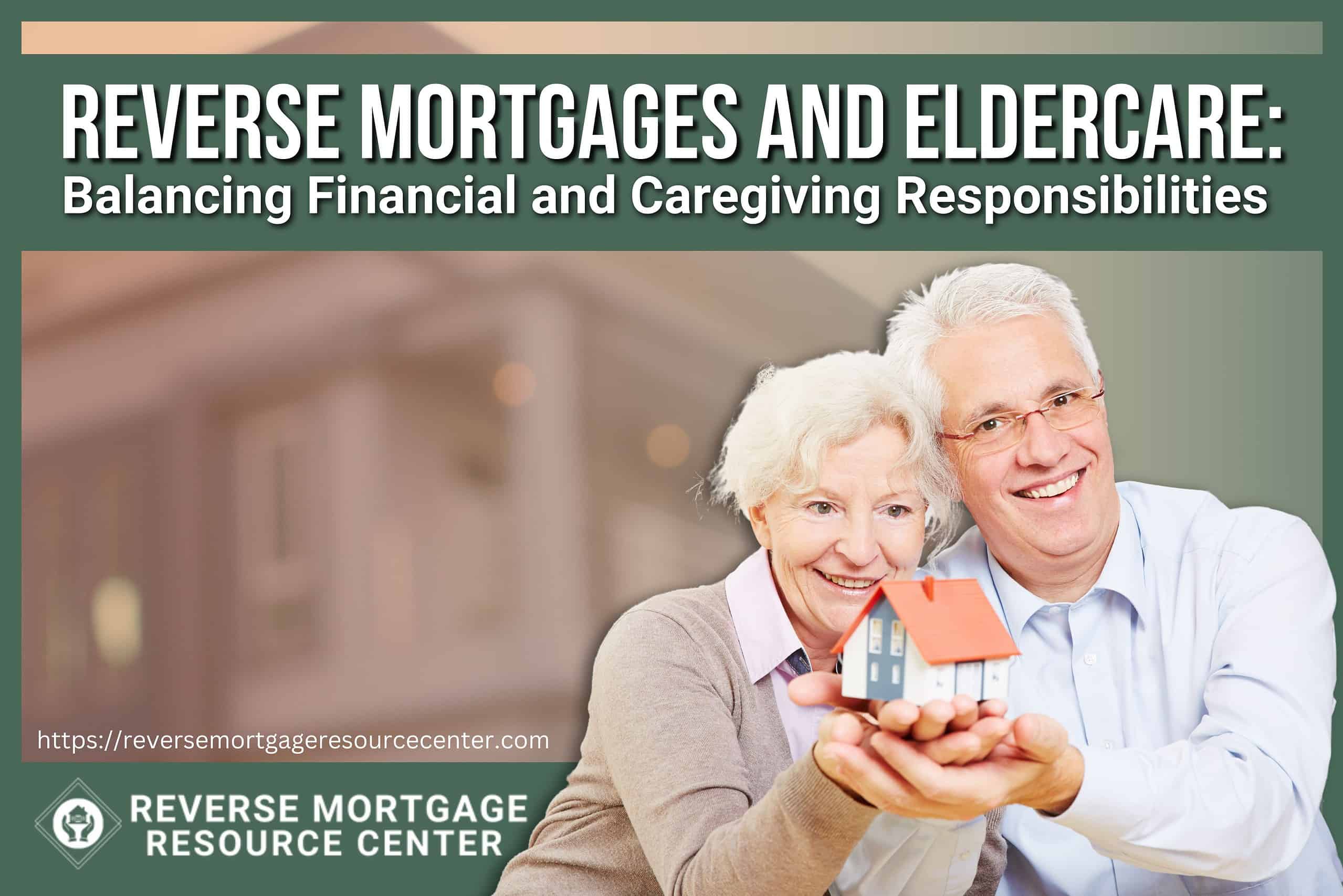Reverse Mortgages and Eldercare: Balancing Financial and Caregiving Responsibilities
As seniors traverse the intricate landscape of retirement, financial stability takes center stage. The challenge is not merely in managing personal finances, but in addressing the escalating responsibilities that often accompany aging. This article delves into the intersection of financial planning and eldercare, with a focus on utilizing reverse mortgages to manage caregiving expenses while maintaining financial security.
Financial Challenges of Seniors Facing Caregiving Responsibilities
The financial landscape for seniors grappling with caregiving responsibilities is multifaceted. As they seek to secure their financial well-being in retirement, the added responsibility of providing care for a loved one introduces new considerations and potential stressors. The costs associated with caregiving – encompassing medical expenses, home modifications, and hiring professional help – can significantly impact a senior’s financial stability.
Moreover, the emotional and physical toll of caregiving may limit seniors’ ability to engage in traditional employment or maintain a consistent income stream. This dynamic creates a delicate balance between providing adequate care for a loved one and ensuring one’s own financial security during the retirement years.
Utilizing Reverse Mortgages as a Financial Tool
Understanding Reverse Mortgages
A reverse mortgage stands as a financial product specifically tailored for homeowners aged 62 and older. It allows seniors to convert a portion of their home equity into accessible funds without selling their homes or taking on a monthly mortgage payment. This financial tool has gained attention as a potential solution for seniors facing caregiving responsibilities.
Managing Caregiving Expenses
One significant advantage of reverse mortgages is their flexibility in how the funds can be used. Seniors can leverage the equity in their homes to cover a range of caregiving expenses, including medical bills, home modifications for accessibility, and hiring professional caregivers. This approach can alleviate the financial burden associated with caregiving, allowing seniors to focus on providing quality care without compromising their own well-being.
Ensuring Financial Stability
Reverse mortgages not only provide a source of funds for caregiving expenses but also offer a way for seniors to enhance their overall financial stability. By tapping into home equity, seniors can supplement their retirement income, potentially reducing the strain on other financial resources. This strategic use of reverse mortgages can help maintain a comfortable lifestyle during retirement while addressing the financial demands of caregiving.
Long-Term Planning with Reverse Mortgages
Beyond immediate financial relief, reverse mortgages can play a crucial role in long-term financial planning. Seniors can opt for a lump sum payment, a line of credit, or monthly disbursements, providing flexibility to tailor the use of funds to their unique needs. This adaptability enables seniors to plan for ongoing caregiving expenses, ensuring a sustainable financial strategy that evolves with changing circumstances.
Expert Advice on Balancing Caregiving and Financial Responsibilities
Consulting Financial Advisors
Given the complexities of both financial planning and caregiving, seeking professional advice becomes imperative for seniors facing these challenges. Financial advisors can assess the specific needs and circumstances of each individual, providing personalized guidance on how to integrate reverse mortgages into a comprehensive financial plan.
Understanding the Risks and Benefits
While reverse mortgages offer valuable financial flexibility, it’s essential for seniors to fully understand the risks and benefits associated with this financial tool. Consulting with experts can help seniors make informed decisions about whether a reverse mortgage aligns with their overall financial goals and caregiving needs.
Exploring Other Financial Options
In addition to reverse mortgages, seniors should explore other financial options available to them. This may include accessing government programs, such as Medicaid, or researching non profit organizations that provide financial assistance for seniors in need. Combining multiple resources can create a more robust financial safety net, ensuring that both caregiving responsibilities and retirement needs are adequately addressed.
Navigating the Regulatory Landscape of Reverse Mortgages
While reverse mortgages offer a valuable financial tool, it’s crucial for seniors to navigate the regulatory landscape associated with these loans. Understanding the terms, conditions, and potential implications is paramount. The Federal Housing Administration (FHA) insures most reverse mortgages, and borrowers are required to undergo counseling to ensure they comprehend the loan’s intricacies.
Additionally, recent regulatory changes have sought to enhance consumer protections in the reverse mortgage market. These changes include improved disclosure requirements and stricter underwriting standards to safeguard seniors from potential pitfalls. Staying informed about these regulations is vital for seniors contemplating the use of reverse mortgages in their financial planning.
The Emotional Toll: Balancing Caregiving and Personal Well-being
While financial planning is crucial, it’s equally important to acknowledge and address the emotional toll that caregiving can take on seniors. Balancing caregiving responsibilities with personal well-being is a delicate task. Seeking support from family, friends, or support groups can provide emotional sustenance, allowing seniors to navigate the challenges of caregiving without sacrificing their own mental and emotional health.
REVERSE MORTGAGE RESOURCE CENTER ~LIVE LIFE ON YOUR TERMS~
Our Lending Team has been serving our clients since 2004. We are passionate about serving our clients with integrity to help them achieve their financial goals.







